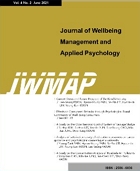- 권한신청
- E-ISSN2586-6036
- KCI
The Prevalence of Retirement Planning Among Women in Malaysia - A Conceptual Article
MOHD ISA, Mohd Yaziz (Graduate School of Business, Universiti Tun Abdul Razak)
MOHAMED, Zulkifflee (School of Accounting & Taxation, Universiti Tun Abdul Razak)
Abstract
Purpose: Many people recognize the fact that women are basically poor at financial and retirement planning. A small number of scholars have explored the factors and situations that influence the level of awareness of pre-retirement women and men with regards to planning for their retirement years. In most developing countries, including Malaysia, there are more men in the younger segment of the population and more women in the older segment, since women tend to live longer than men due to having jobs of relatively lower risk, their behaviors, and activities. Research design, data and methodology: Given that it is hard to predict whether they will be healthy in old age, women may require additional resources to obtain the care and assistance that they need. The transition from career life into retirement is a long process for people to go through. Some may be able to prepare for the next stage of life, and some may not be able to prepare due to personal reasons. Planning for future retirement is important because it will affect the quality of a woman's life after a certain age. Results: Without proper planning, women may face financial instability, depression, and poor psychological well-being. However, many women are unaware of their financial status or do not know their family's financial status, such as tracking the main income, budget, and expenses, financial commitments and have no proper record of assets owned, loans owed, or updated loan balances. Conclusions: The findings of this research have led to the conclusion that pre-retiree women are likely to regard their retirement savings as sufficient without realizing that they should have at least several types of savings instead of just one, and the grave consequences of not having any savings at all for their retirement years.
- keywords
- Gender, Education, Income, Pre-retirement, Retirement Planning, Women
- 다운로드 수
- 조회수
- 0KCI 피인용수
- 0WOS 피인용수














